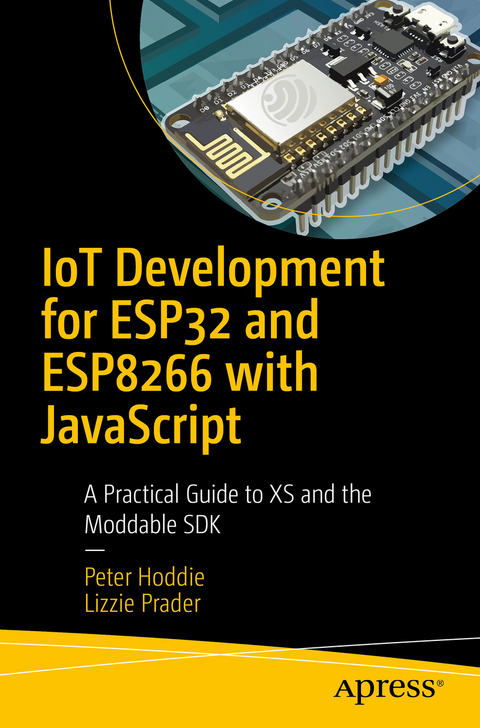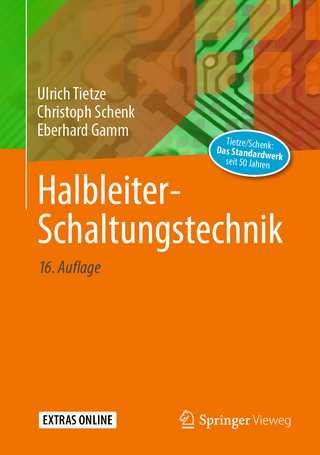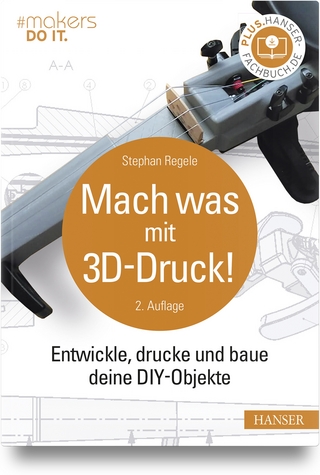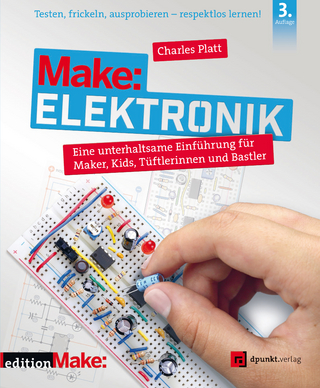
IoT Development for ESP32 and ESP8266 with JavaScript
Apress (Verlag)
978-1-4842-5069-3 (ISBN)
The Moddable SDK enables you to unlock the full potential of inexpensive microcontrollers like the ESP32 and ESP8266. Coding for these microcontrollers in C or C++ with the ESP-IDF and Arduino SDKs works for building basic products but doesn't scale to handle the increasingly complex IoT products that customers expect. The Moddable SDK adds the lightweight XS JavaScript engine to those traditional environments, accelerating development with JavaScript while keeping the performance benefits of a native SDK.
Building user interfaces and communicating over the network are two areas where JavaScript really shines. IoT Development for ESP32 and ESP8266with JavaScript shows you how to build responsive touch screen user interfaces using the Piu framework. You'll learn how easy it is to securely send and receive JSON data over Wi-Fi with elegant JavaScript APIs for common IoT protocols, including HTTP/HTTPS, WebSocket, MQTT, and mDNS. You'll also learn how to integrate common sensors and actuators, Bluetooth Low Energy (BLE), file systems, and more into your projects, and you'll see firsthand how JavaScript makes it easier to combine these diverse technologies.
If you're an embedded C or C++ developer who has never worked in JavaScript, don't worry. This book includes an introduction to the JavaScript language just for embedded developers experienced with C or C++.
What You'll Learn
Building, installing, and debugging JavaScript projects on the ESP32 and ESP8266
Using modern JavaScript for all aspects of embedded development with the Moddable SDK
Developing IoT products with animated user interfaces, touch input, networking, BLE, sensors, actuators, and more
Who This Book Is For
Professional embedded developers who want the speed, flexibility, and power of web development in their embedded software work
Makers who want a faster, easier way to build their hobby projects
Web developers working in JavaScript who want to extend their skills to hardware products
Peter Hoddie is an engineer and entrepreneur focused on client software. He is recognized for crafting compact and efficient code that pushes the boundaries of user experience on consumer hardware. The software he and his teams have built has powered mass-market consumer products from companies including Apple, Palm, Sling, HP, and Sony. Peter recognizes that the first users of any product are the developers creating it, and that those developers cannot build compelling consumer products on a foundation that’s unstable, complex, or confusing. He therefore champions investments in great tools and a simple runtime architecture. Peter has founded several companies, including Kinoma, which merged into Marvell Semiconductor. He led QuickTime development at Apple during the 1990s as a Distinguished Engineer. He contributed to the development of the QuickTime file format and its adoption by ISO into the MPEG-4 standard. He is currently a member of the JavaScript language standards committee (ECMA TC39) and chair of ECMA TC53 for "Smart wearable systems and sensor-based devices". Peter is particularly proud of his work putting both the KinomaJS framework and Darwin Streaming Server into open source. He continues to come to terms with the 10 patents that bear his name. Lizzie Prader is an engineer whose educational background is in theoretical computer science, but is currently better described as an engineer focused on developers’ needs. She recognizes the importance of customer support during all stages of a project, and enjoys working with developers to smooth the on-ramp to embedded development. Working with users of all skill levels—from professional engineers to makers and hobbyists to absolute programming beginners—has made her an advocate of well-organized documentation and readable code. Prior to Moddable, Lizzie worked as a developer relations engineer at Kinoma. Her main goal was to help customers get the most out of Kinoma’s software and hardware prototyping products, both through direct contact with developers and by creating a variety of resources including sample code, tutorials, and blog posts
Chapter 1: Getting Started.- Chapter 2: JavaScript for Embedded C and C++ Programmers.- Chapter 3: Networking.-
Chapter 4: Bluetooth Low Energy (BLE).- Chapter 5: Files and Data.- Chapter 6: Hardware.- Chapter 7: Audio.- Chapter 8: Graphics Fundamentals.- Chapter 9: Drawing Graphics with Poco.- Chapter 10: Building User Interfaces with Piu.- Chapter 11: Adding native code.
| Erscheinungsdatum | 06.07.2020 |
|---|---|
| Zusatzinfo | 100 Illustrations, color; 12 Illustrations, black and white; XXXV, 593 p. 112 illus., 100 illus. in color. |
| Verlagsort | Berkley |
| Sprache | englisch |
| Maße | 155 x 235 mm |
| Themenwelt | Mathematik / Informatik ► Informatik ► Netzwerke |
| Informatik ► Weitere Themen ► Hardware | |
| Schlagworte | embedded application development • embedded JavaScript • ESP32 • ESP8266 • ESP8266/ESP32 application development • internet of things • IOT • JavaScript • JavaScript for ESP8266/ESP32 • JavaScript for IoT • JavaScript for microcontrollers • Node.js |
| ISBN-10 | 1-4842-5069-9 / 1484250699 |
| ISBN-13 | 978-1-4842-5069-3 / 9781484250693 |
| Zustand | Neuware |
| Informationen gemäß Produktsicherheitsverordnung (GPSR) | |
| Haben Sie eine Frage zum Produkt? |
aus dem Bereich


